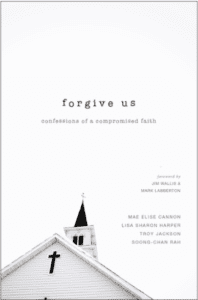
As news from North Korea increasingly fuels both our news feeds and our public imagination, I often find myself wondering: are the stories true? Is life in North Korea really like stepping into a time capsule?
Behind the rhetoric, we really know so little about the day-to-day life of North Korean citizens. So I was particularly excited when Christianss for Social Action was recently able to host a delegation of folks who are doing work in North Korea, many of whom currently live there or lived there recently. I was curious: what would we learn? Some of our guests were healthcare providers, others ran businesses. Some worked in the educational sector, others provided clean water or worked in other necessary ways to help support the North Koreans and equip them with what isn’t available. Together, we were able to see a much fuller picture of life in North Korea than what filters through into the US media.
I wondered: are the stories true? Is life in North Korea really like stepping into a time capsule?
What I learned, perhaps unsurprisingly, is that the North Korean people are people just like us. “They care about their kids, they worry about their health,” one NGO representative said. “There’s a difference between the North Korean people and the North Korean government.” The group urged us: remember the common reality of the people on the ground, the real folks who live in the country. Don’t give in so easily to the stereotypes we might be fed by the media.
When asked about the work they do and the conditions under which they work, our guests described a complicated web of sanctions, actions, and rules that had in some cases caused their work on the ground to stop entirely. “Doing work in North Korea has always been hard,” said one veteran who had been engaged in humanitarian work for 23 years. “But in the last few months, it’s become so hard.” They went on to describe the unintended consequences of various actions and policies enacted not just by North Korea or the United States, but by China and the United Nations, as well. On paper, humanitarian work is supposed to continue unhindered. But the group relayed myriad stories of the ways that their work has stopped—mired in a web of sanctions, politics, and large bureaucracy. The people have become stuck, in some cases crushed.
One of our guests spoke of a regulation that limits bringing in metal to the country. Probably a well-intentioned policy, meant to discourage additional long-range missile testing, but one of the results is that shipments of humanitarian goods that contain metal are being indefinitely delayed. “I don’t think anyone intends ill will,” she said, but the fact of the matter is that people are becoming the pawns in the midst of these rules.
At the same time, while increasing regulations and their impact on the North Korean people have been discouraging, another leader reflected back to me that God is still moving and working in North Korea. His only sadness, he told me, was that the blessing of being a part of that work might be lost because of all of the restrictions. Yet he said he trusts that God will work through the people that he wants to work through.
As we pray for our sisters and brothers in North Korea, let’s remember that policies are not people, and a single ruler does not speak for the entirety of a country. And let’s also remember that, as always, God has the final word.
Nikki Toyama-Szeto is Executive Director of Christians for Social Action.



One Response
You make excellent points, but I wish you had also included some reference to the persecution of Christians in North Korea. While the stories that come from organizations like Open Doors and Voice of the Martyrs do NOT give a well rounded picture of life in North Korea they should not be ignored, either.